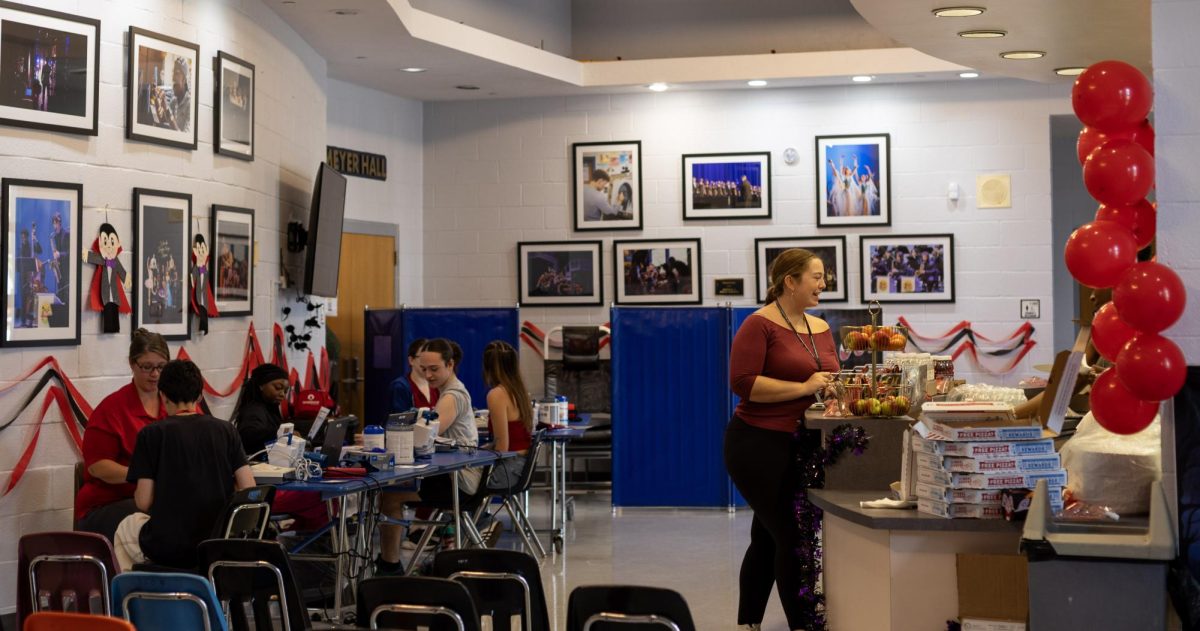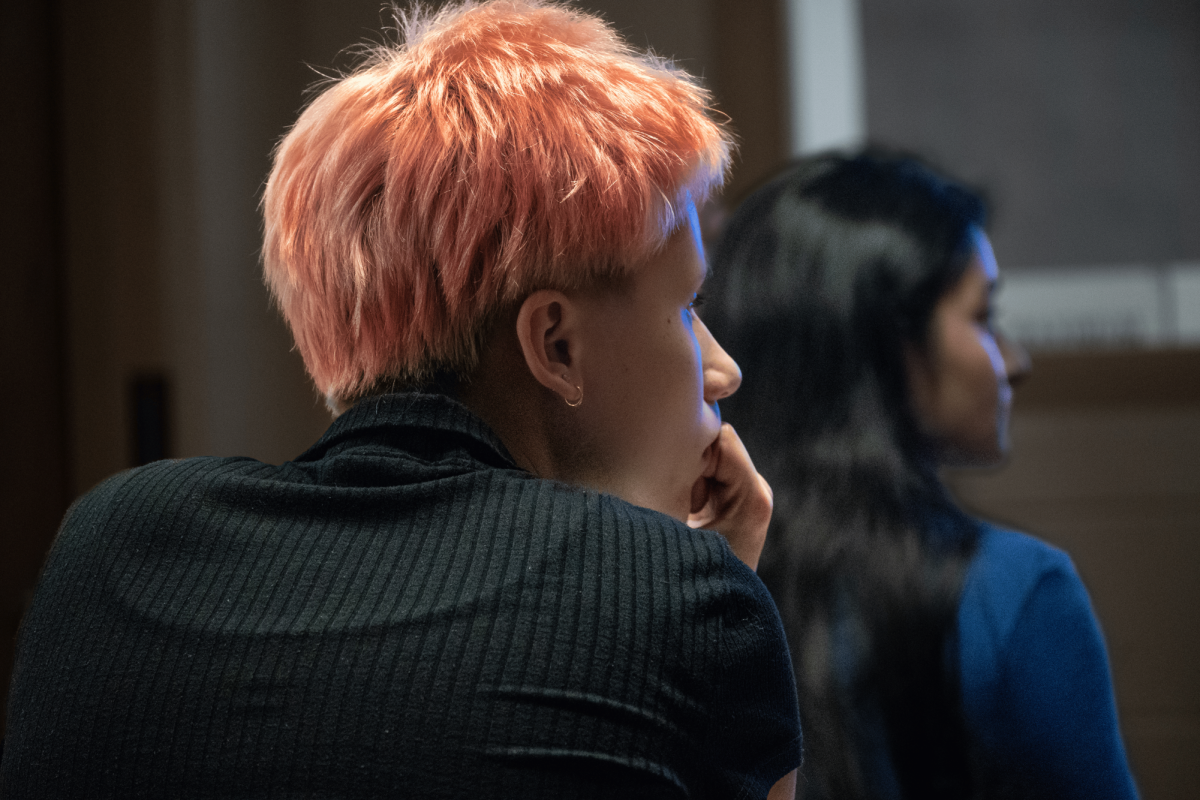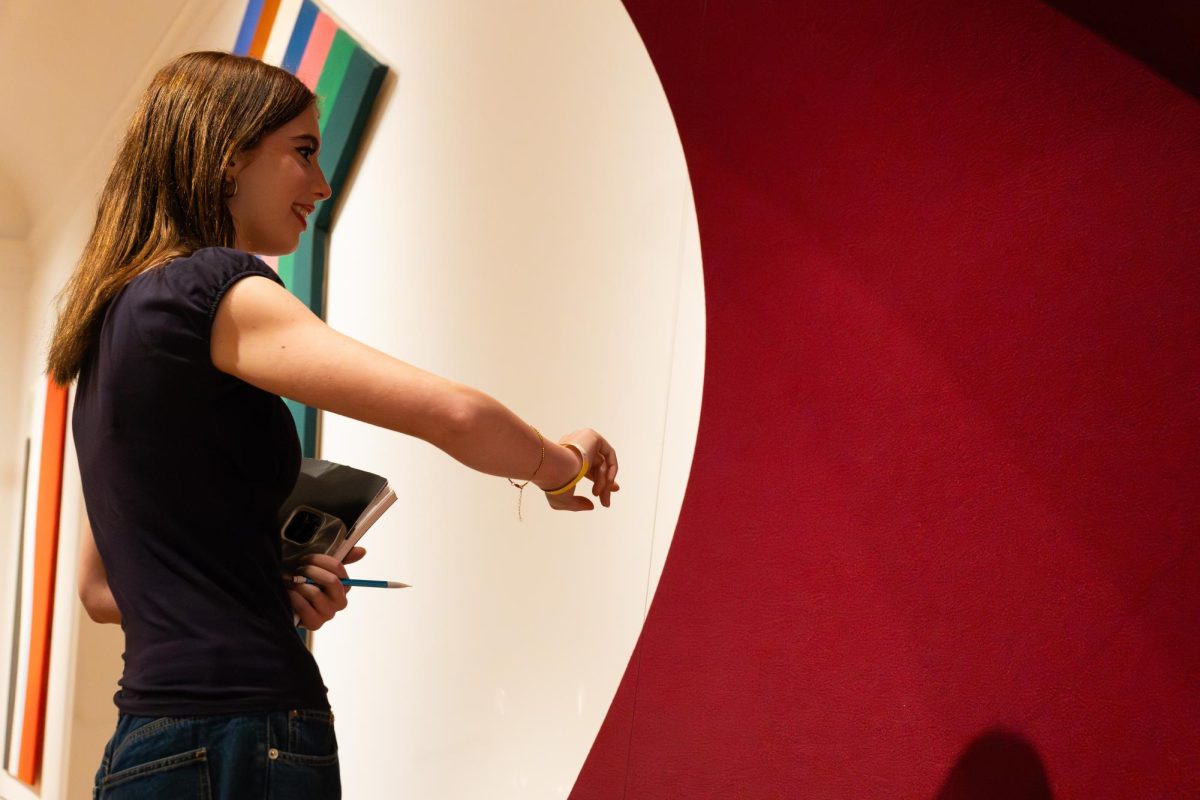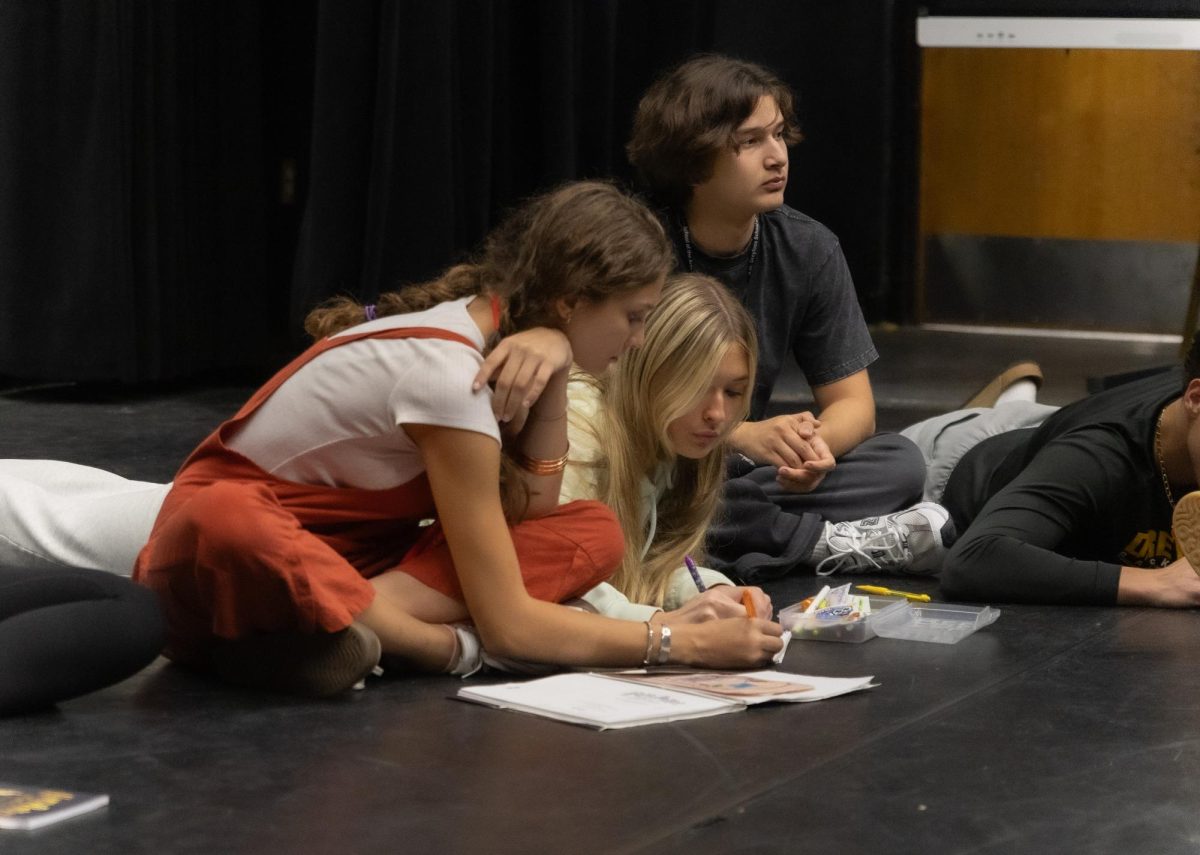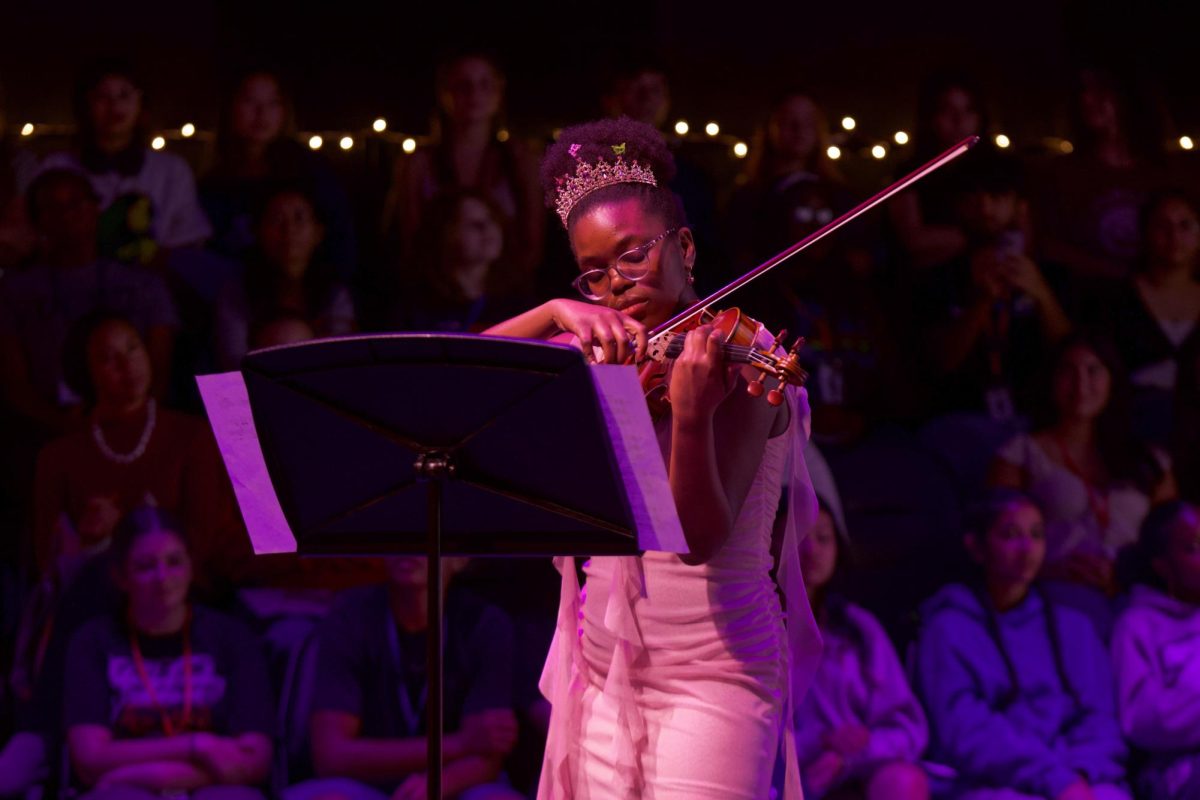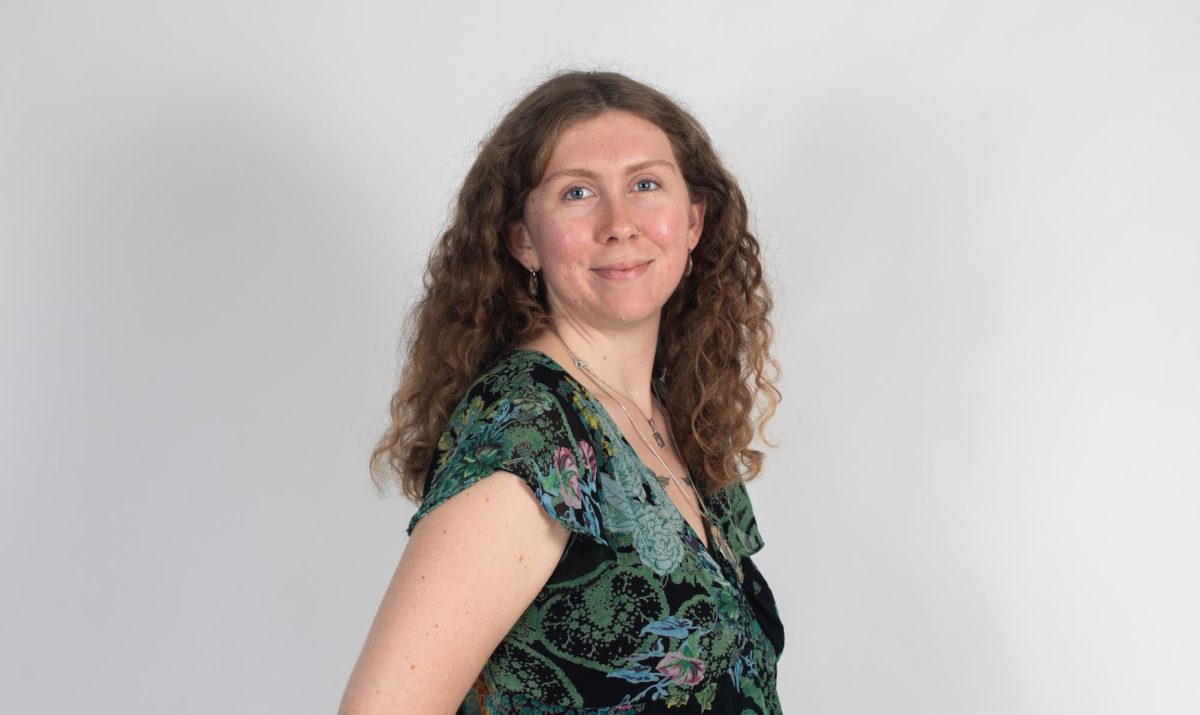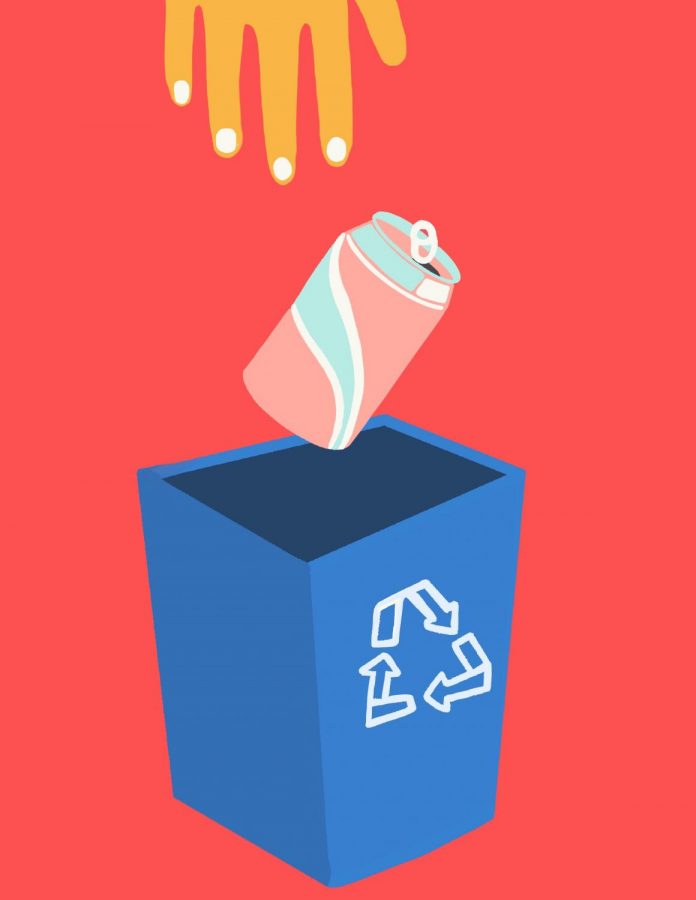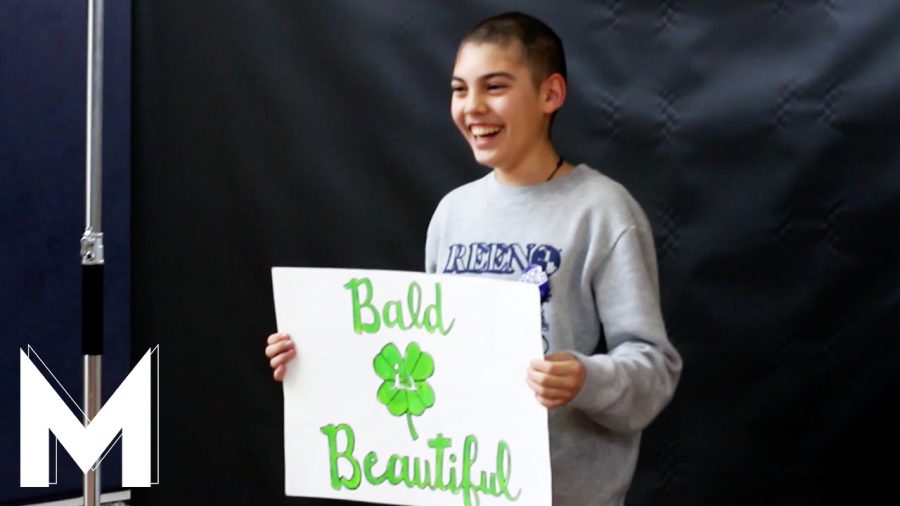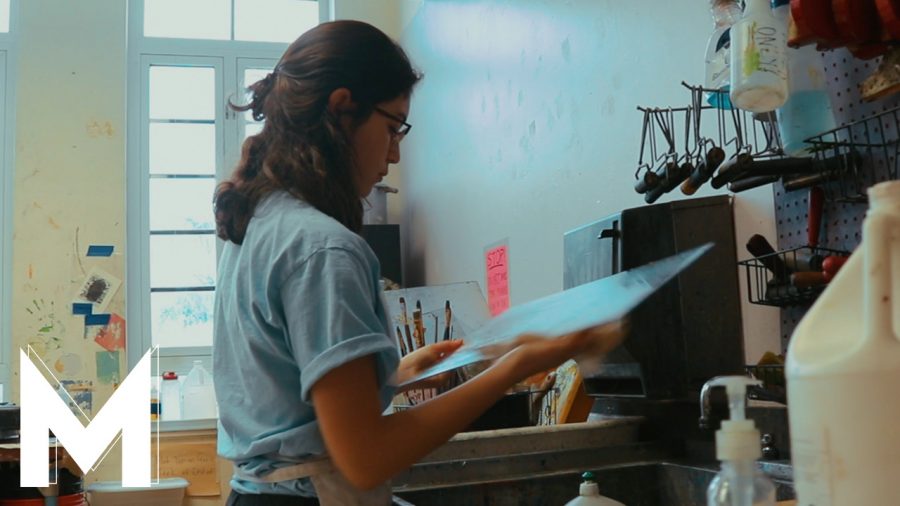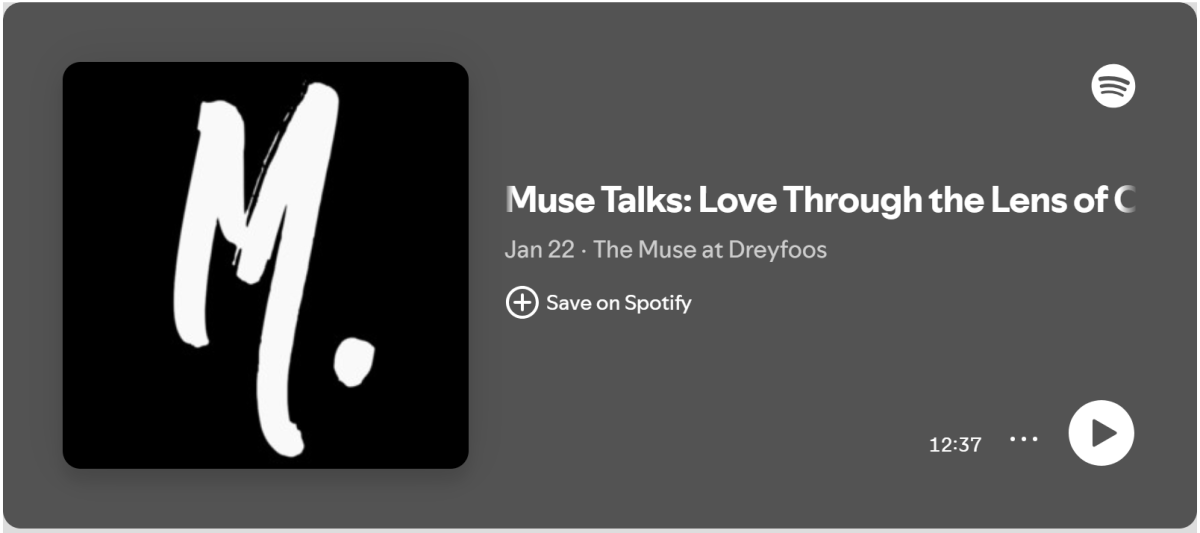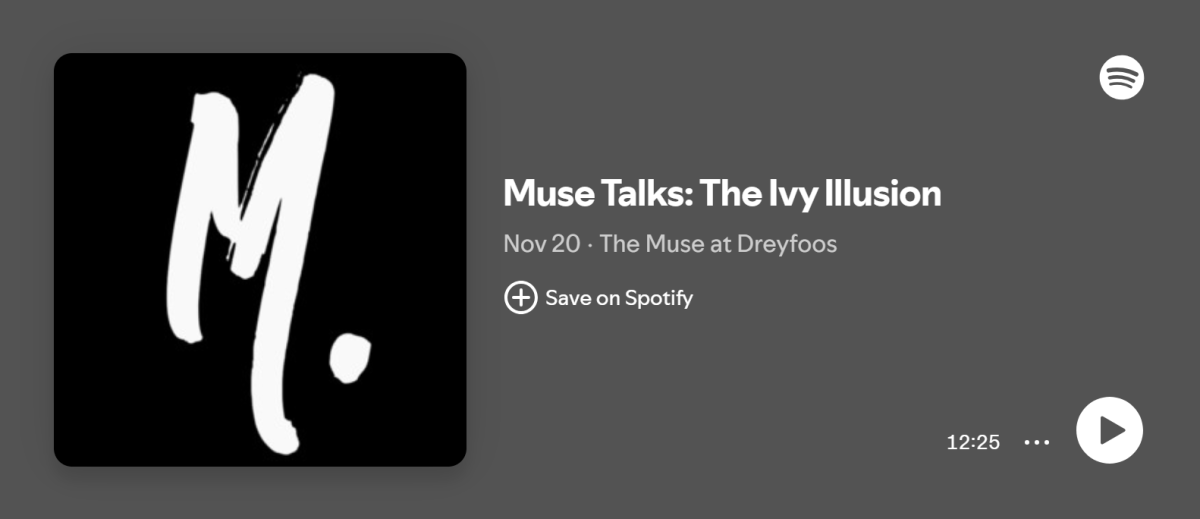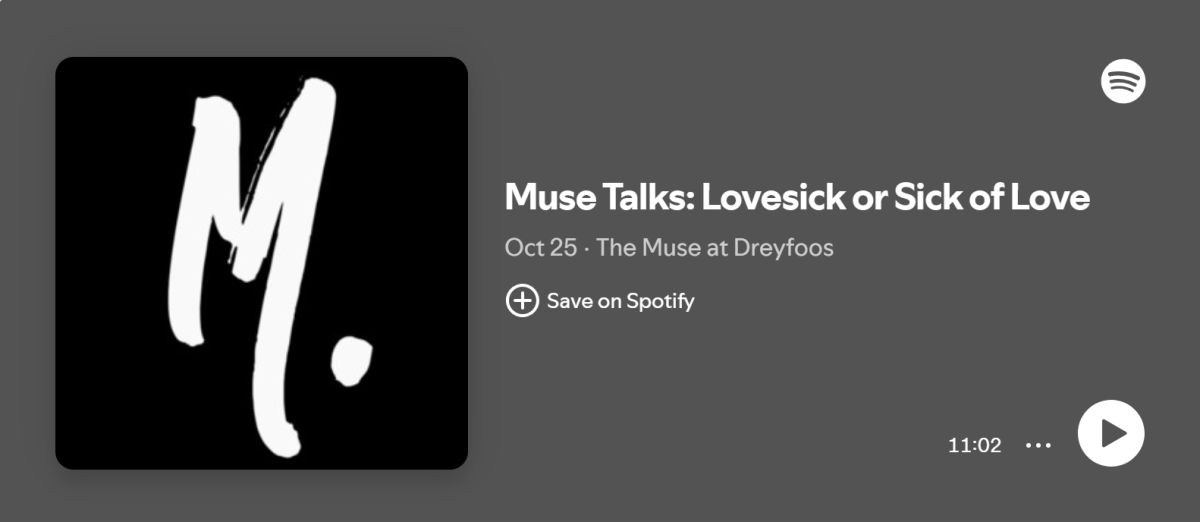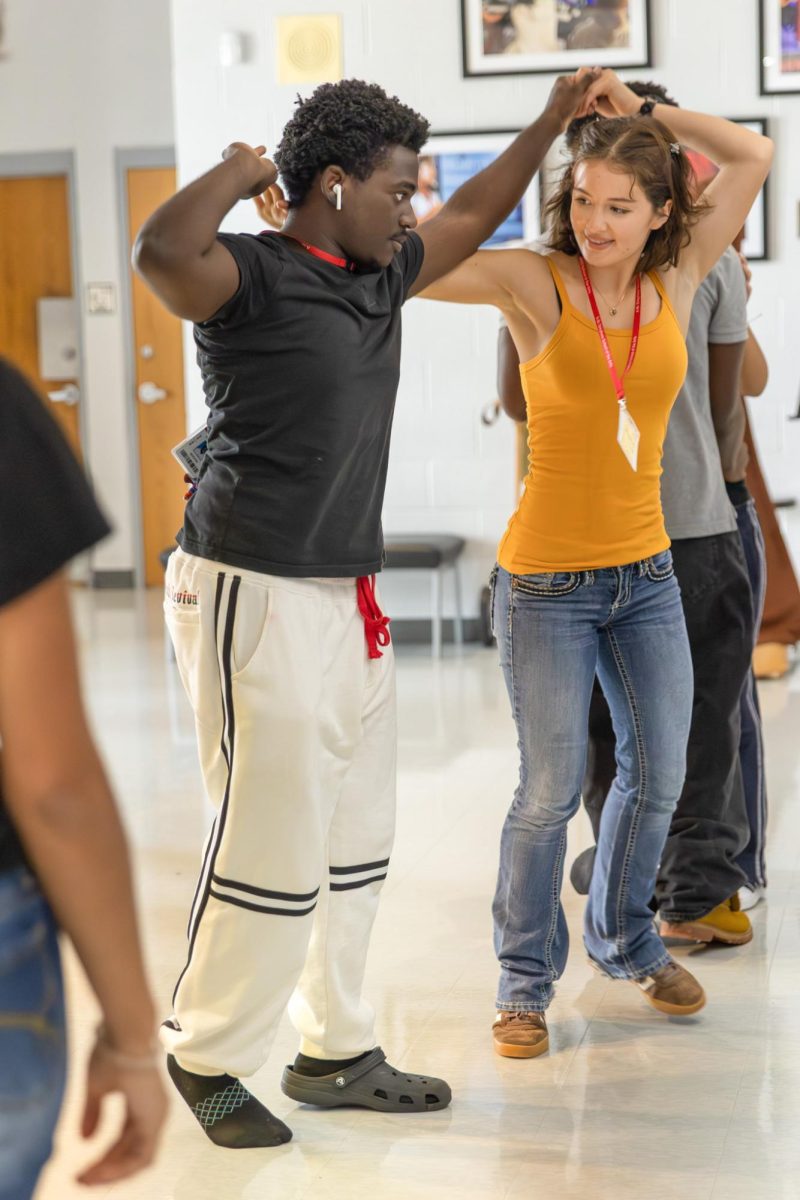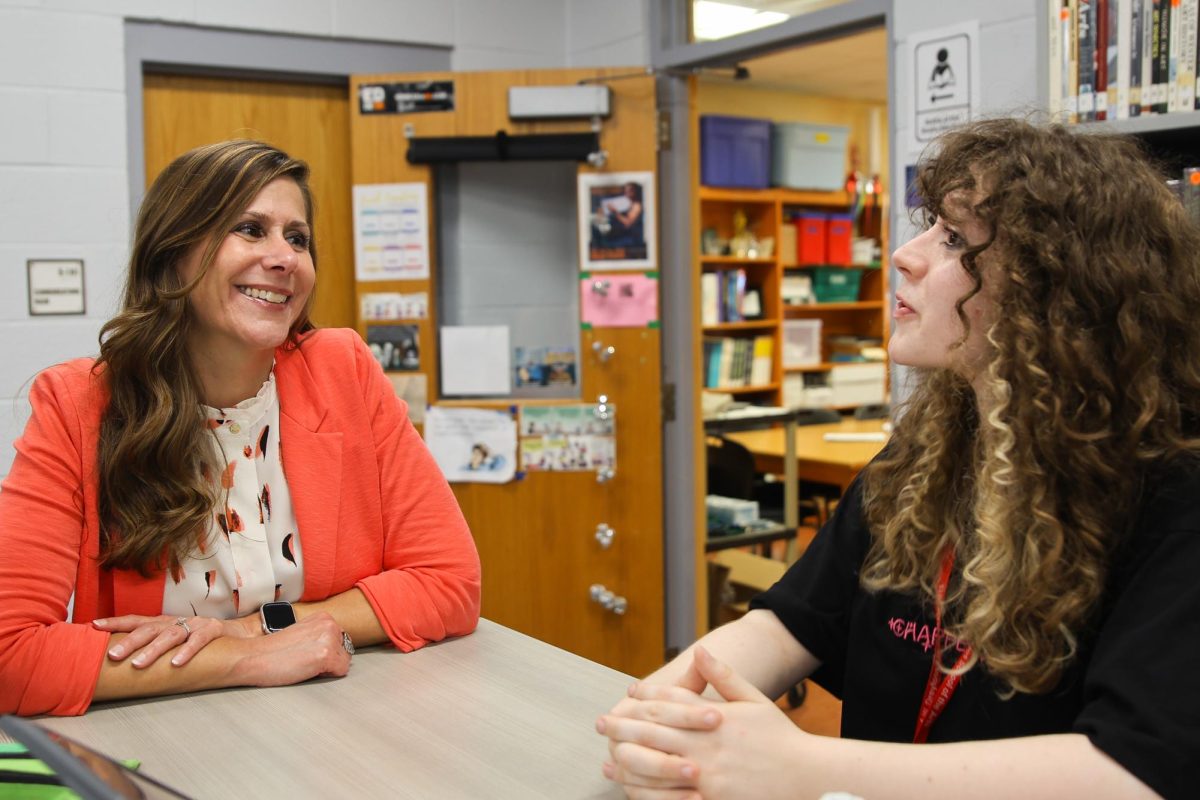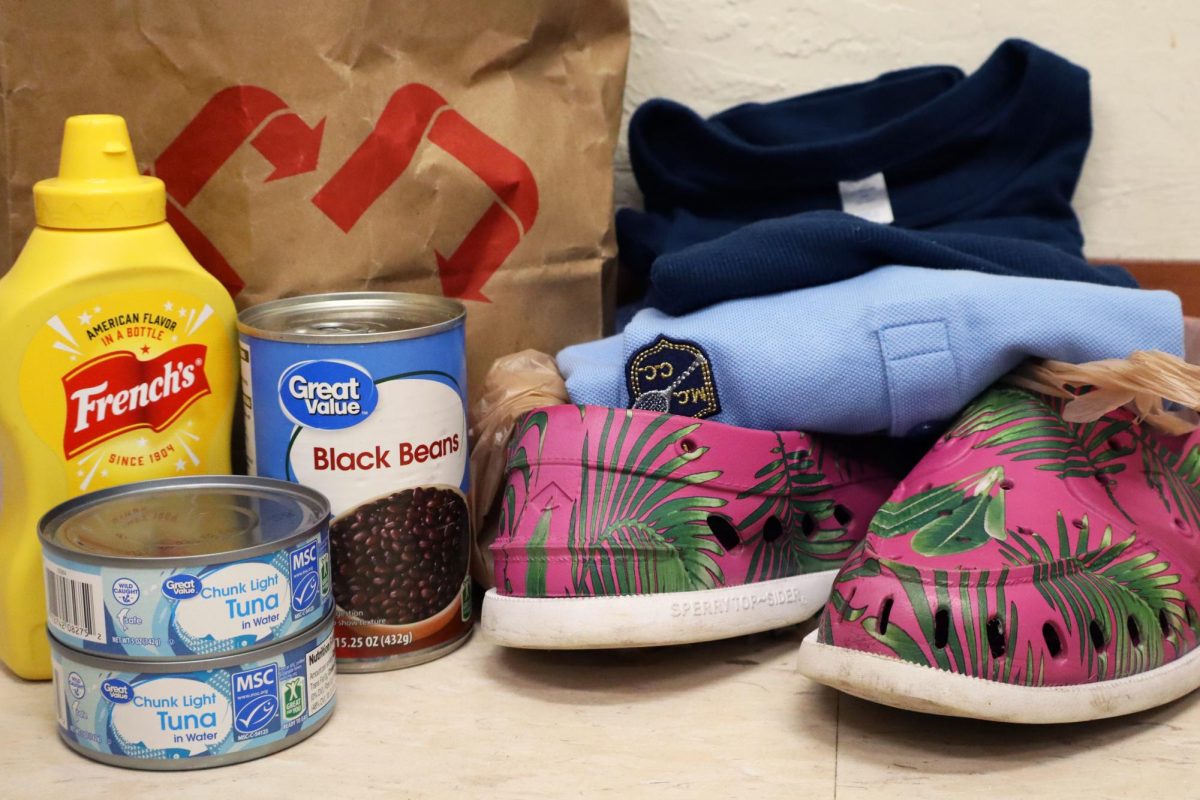Sweatshirts, shoes, and staple foods supplied by students and their families nearly spill out of the 13 boxes and bags in Spanish Honor Society (SHS) sponsor and Spanish teacher Lori Brown’s classroom. Soon, these items will be sent to Latin American countries, whose flags flutter and stretch the frame of the ceiling just outside of Mrs. Brown’s door. These decorations represent the nations these donations hope to aid.
Last year, Mrs. Brown, along with SHS co-presidents and communications seniors Keira Cardoso and Mia Alonso, co-founded the Dona Por Amor fundraiser through SHS. They partner with nonprofits to fundraise and send donated hygiene products, clothes, school supplies, and canned foods to Latin American countries to alleviate the problems faced by families in need there.
“We’re very, very fortunate where we are,” Mrs. Brown said. “We have a great community, a great country, everything. Yet there’s people suffering, and (so I thought) why can’t we help them as well?”
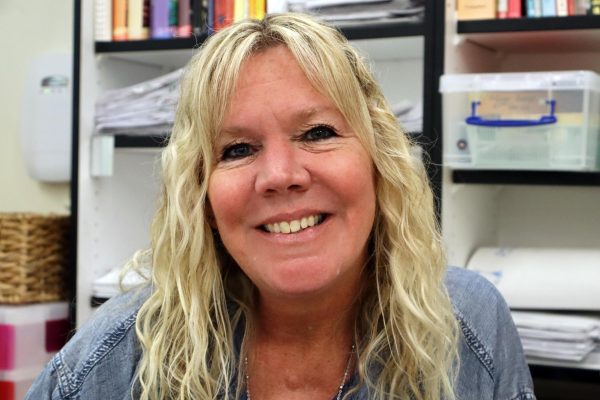
(Victoria Miloslavich)
Although Dona Por Amor is a new initiative at the school, the concept had been developing in Mrs. Brown’s mind for years. She said that it was “heartwarming to be able to give to those in need” after they had amassed over 250 pieces of clothing for Cuba following their first official donation drive through Dona Por Amor.
“It was just so cool, even from the beginning, when I had all these bags of clothes that people donated here in school,” Mrs. Brown said. “We had assembly lines of (people) separating the clothes from men’s (and) women’s to girl’s and boy’s. Everybody wants to help one another, and what’s better than that?”
For Cardoso, who is Cuban-American, being able to help start and lead a fundraiser that helped Latin American countries, including her own, hit close to home.
“It just meant a lot to me,” Cardoso said. “I remember going home that night tearing up, and I’m like, ‘Mom, I’m actually making a difference,’ and it’s not just me that’s doing it. It is the whole community at school, because in all honesty, this wouldn’t work without everyone’s passion and for everyone helping.”
Band senior Maria Lopez moved from Cuba to the United States on Jan. 25, 2023, leaving behind her family and old life for an “opportunity to come here and start over.” She values the contributions of Dona Por Amor as well.
“I think it’s great that they (SHS) have this feeling of helping and compassion for others, a feeling that they have managed to spread throughout the school, homes, and neighborhoods,” Lopez said. “Mrs. Brown and our students have started a small pulse of mutual help and awareness, that little by little, will gain strength and will become a large chain of people who will begin to help as well.”
Every few months, the Dona Por Amor officer team works together to decide which Latin American country to donate to. To start off this year, they chose Venezuela. Dona Por Amor outreach officer and strings sophomore Meredith Abel said they chose this country due to the major socioeconomic and political crisis occurring there.
According to BBC News, tensions have continued to rise after the Venezuelan election on July 28, 2024, when Nicolás Maduro assumed the presidency for a third consecutive term after it was handed to him by a government-controlled electoral authority.
“I remember a few years ago, one of my students was explaining how they just fled from there (Venezuela) because when they were going to pay their electric bill, they had to sign a form to pledge to vote for this guy in the next election, and they didn’t want to sign it,” Mrs. Brown said. “So then they turned off their electricity, and then they started getting death threats just because they would not agree to vote for the candidate that they believed was corrupt.”
Growing up in Ciudad Guayana, a city in the South of Venezuela, strings junior Elias Cohen said before his family left when he was nine years old, they were considered to be of the “middle-high class.” Following the presidencies of Hugo Chávez and Maduro, though, the country fell into economic and social distress, with the country having “to update paper money every year,” and the currency that he was raised with now had no value. According to Forbes Advisor, as of November, one Venezuelan Bolivar is equivalent to approximately 0.023363 US dollars.
“I couldn’t go outside past 7 p.m., and my family had experiences with robbery and assault in their own property more than once,” Cohen said. “The situation in Venezuela impacts me on a regular basis. I still have most of my family members living in Venezuela, many of which still are struggling to achieve a comfortable life.”
Cohen said Dona Por Amor is helpful especially with Venezuela’s current situation.
“At this time, the longing of my home in Venezuela is unbearable,” Cohen said. “Flights are extremely expensive, and I am only able to travel to Venezuela once after leaving. I feel that the life I cherished in Venezuela was taken from me. It (Dona Por Amor) allows people who don’t know much about the topic to put themselves in the point of view of those who have made that voyage from their homelands.”
Cohen is just one of 7.7 million Venezuelans who have fled the country since 2014, according to the United States of America for the United Nations High Commissioner for Refugees (USA for UNHCR). This displacement has caused people like theatre junior Andrea Mora to not be able to visit extended family for over 10 years.
To overcome this disconnection, Mora’s family has shipped supply boxes to the country to help her family face the crisis, as well as other Venezuelans that are affected. She said that she appreciates Dona Por Amor not just for the awareness that it has garnered towards the situation, but also for its ability to provide supplies on a “much larger scale.”
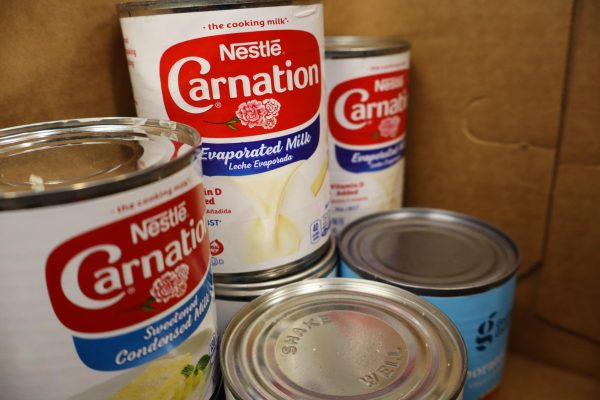
(Victoria Miloslavich)
“(By) bringing awareness to the crisis, we build a stronger voice to oppose it, to fight it,” Mora said. “We need to keep fighting this dictatorship. It’s the only way change will ever occur.”
Depending on what the country is lacking in most, Dona Por Amor tries to collect donations pertaining to that deficit, whether that be clothes for Cuba or classroom supplies for Colombia. After talking to Venezuelan parents at Dreyfoos, the SHS officers found that they needed hygiene products and clothes for the winter and summer. According to Statista, a data-gathering platform, around 82.4 percent of households in Venezuela live in poverty conditions, and around 50.5 percent live in extreme poverty.
“I think people need to understand how lucky we are,” Cardoso said. “There are people who don’t have what we have, and they don’t have the freedom that we have. The more we can educate people, the more of a difference we can make. Even if it’s not your family, being able to help someone else should mean something to you, especially because it’s the world we live in.”
For Dona Por Amor, establishing a network with other nonprofits has not been easy. Mrs. Brown said the governments in certain Latin American countries often confiscate supplies, so she and the Dona Por Amor team have to find specific organizations that can get the goods to the country in need.
“People are just so giving when you just ask them or explain the situation, so it’s not even the donations that are the issue,” Mrs. Brown said. “It’s just actually getting the supplies there.”
Though Dona Por Amor prioritizes helping Latin American countries through donations, Mrs. Brown said she thinks that this situation indirectly affects everyone, even if they do not have a personal connection to these countries.
“Especially as teenagers and high school kids, this is great to see what else is going on in the world,” Mrs. Brown said. “We need to understand there’s something more outside of where we live, and there’s other people that need help. And if we can do it, then I definitely think we should.”
Cohen said that the efforts of Dona Por Amor have already begun to have an impact on Latin American countries.
“Everyone deserves the right of freedom and the accessibility of everyday items needed to survive as a human being,” Cohen said. “Dona Por Amor is helping to give these rights back to many individuals.”

